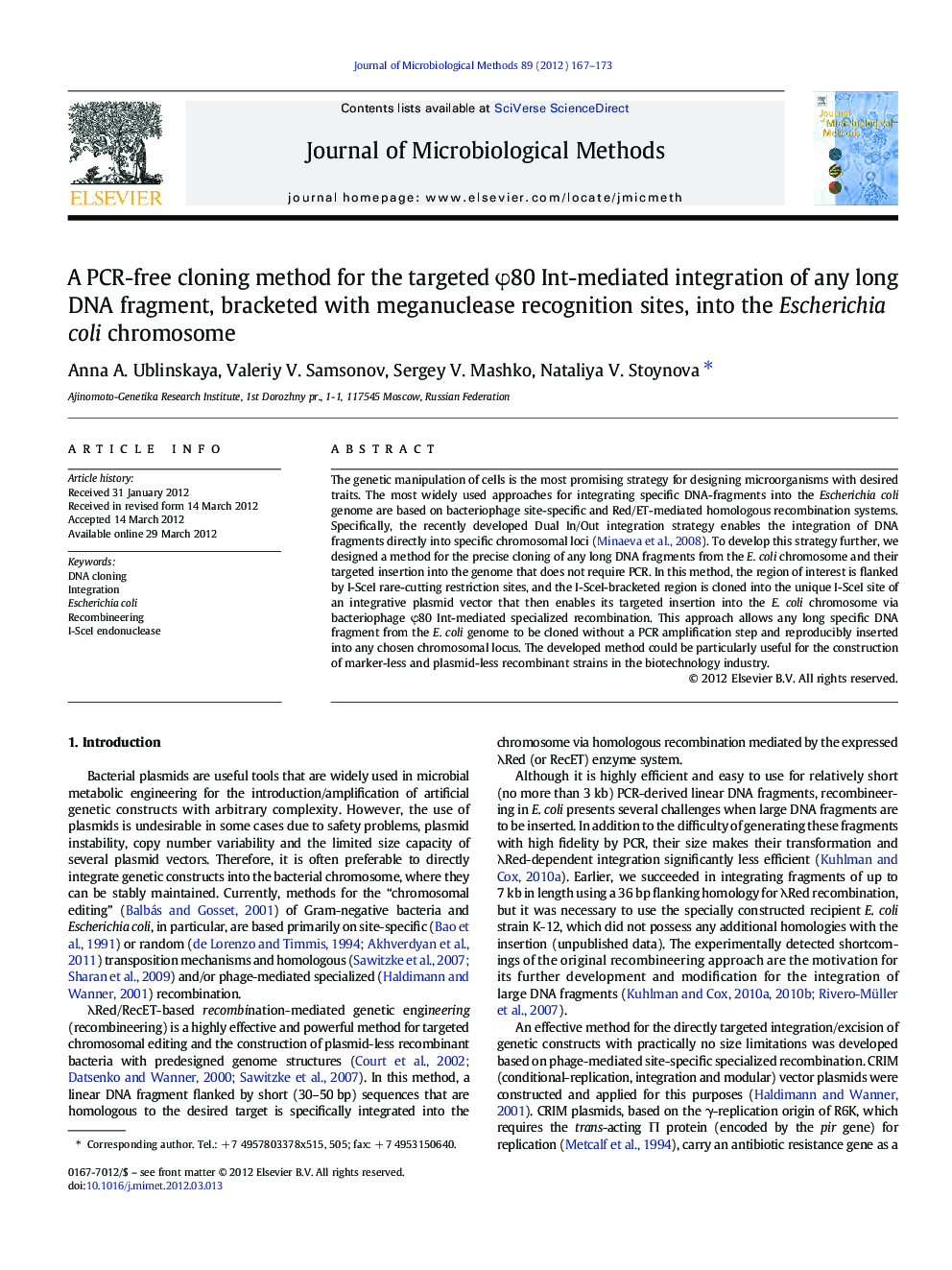| Article ID | Journal | Published Year | Pages | File Type |
|---|---|---|---|---|
| 2090231 | Journal of Microbiological Methods | 2012 | 7 Pages |
The genetic manipulation of cells is the most promising strategy for designing microorganisms with desired traits. The most widely used approaches for integrating specific DNA-fragments into the Escherichia coli genome are based on bacteriophage site-specific and Red/ET-mediated homologous recombination systems. Specifically, the recently developed Dual In/Out integration strategy enables the integration of DNA fragments directly into specific chromosomal loci ( Minaeva et al., 2008). To develop this strategy further, we designed a method for the precise cloning of any long DNA fragments from the E. coli chromosome and their targeted insertion into the genome that does not require PCR. In this method, the region of interest is flanked by I-SceI rare-cutting restriction sites, and the I-SceI-bracketed region is cloned into the unique I-SceI site of an integrative plasmid vector that then enables its targeted insertion into the E. coli chromosome via bacteriophage φ80 Int-mediated specialized recombination. This approach allows any long specific DNA fragment from the E. coli genome to be cloned without a PCR amplification step and reproducibly inserted into any chosen chromosomal locus. The developed method could be particularly useful for the construction of marker-less and plasmid-less recombinant strains in the biotechnology industry.
► The method for the precise cloning of any long DNA fragments was developed. ► PCR-amplification of long DNA fragment is not required for cloning. ► The method allows targeted insertion of cloned DNA into any locus of E. coli. ► The insert can be multiplied a in step-wise fashion by repeated integrations. ► The method is useful for design of industrial strains and bacterial genome study.
